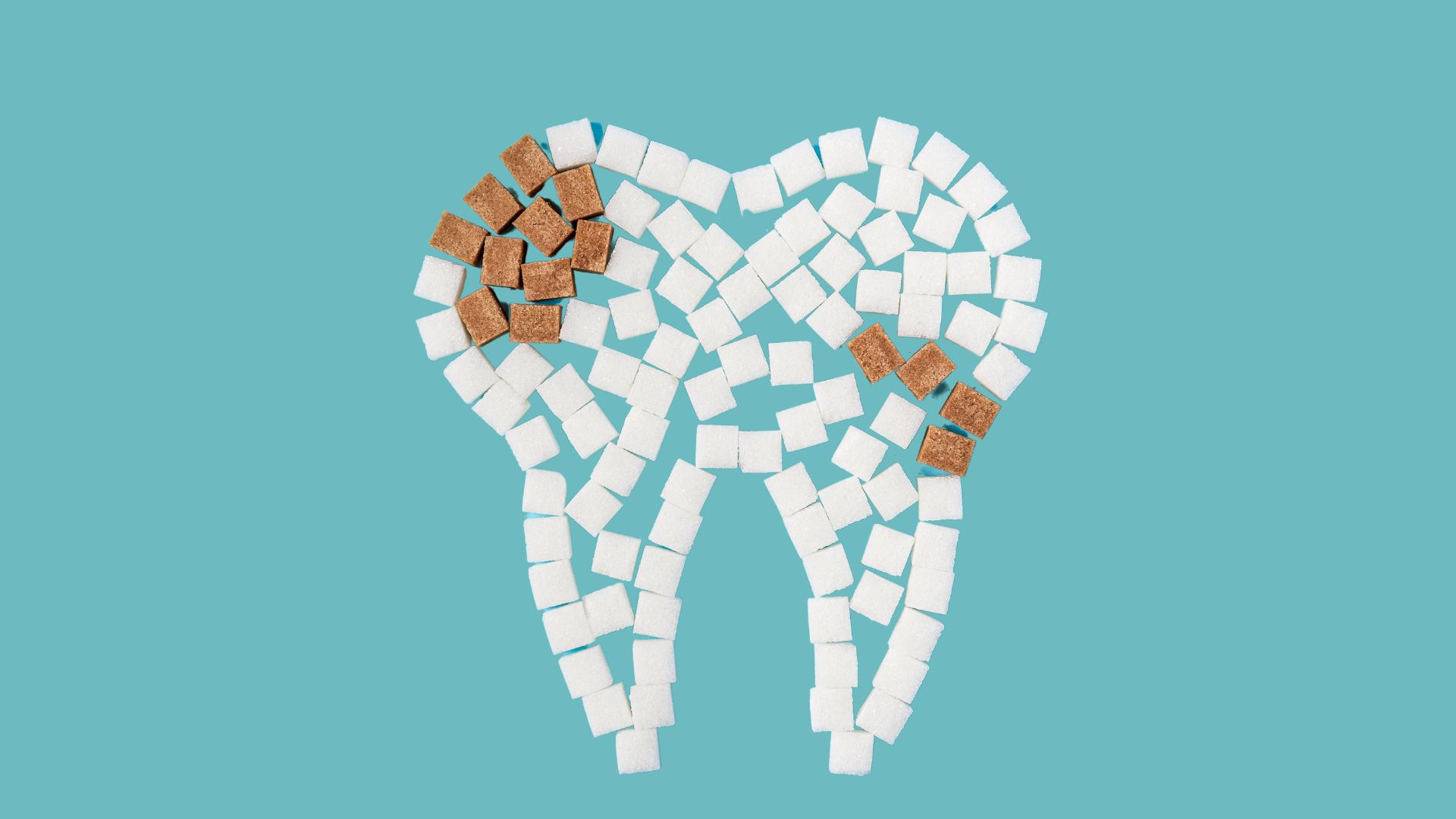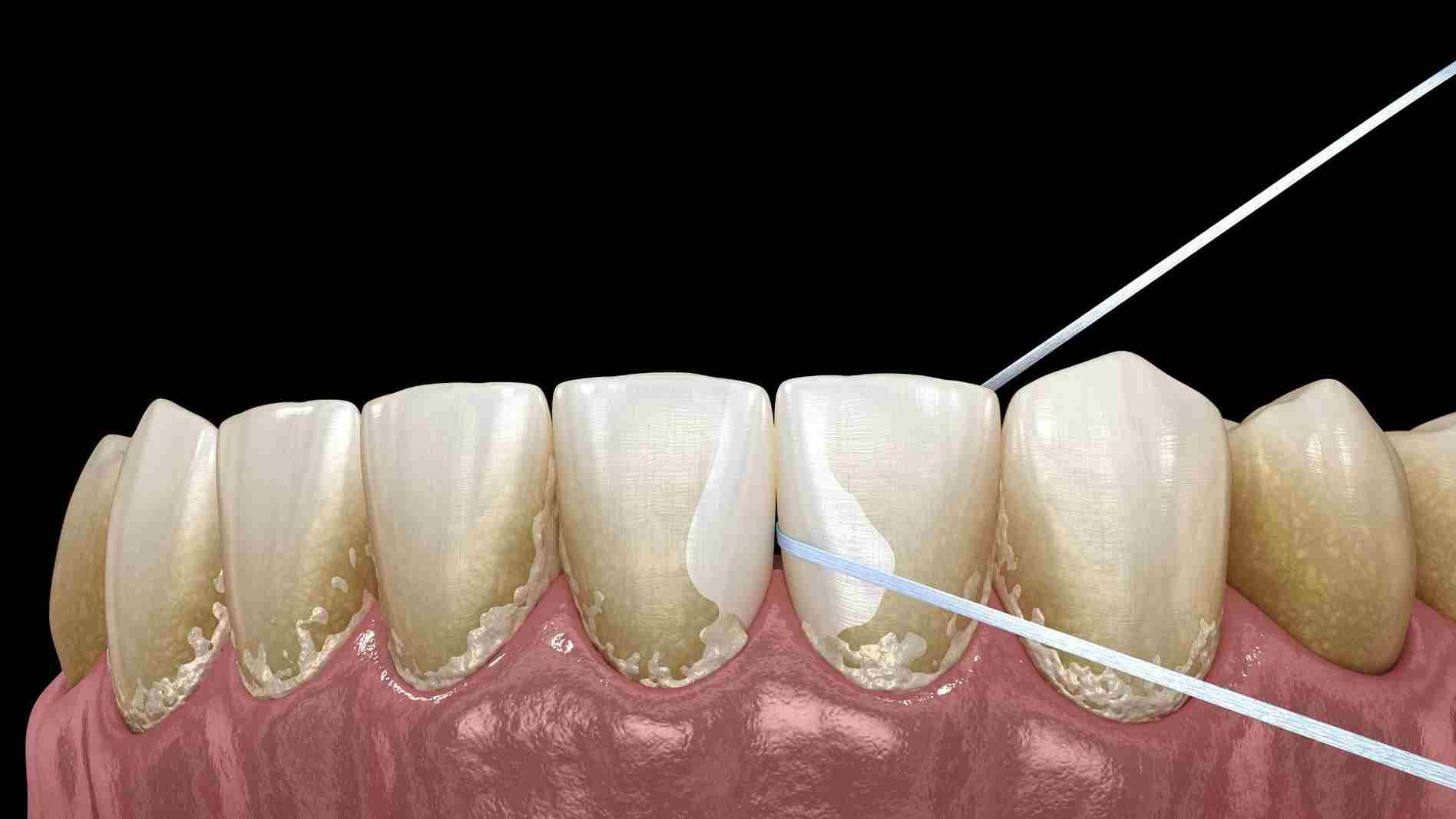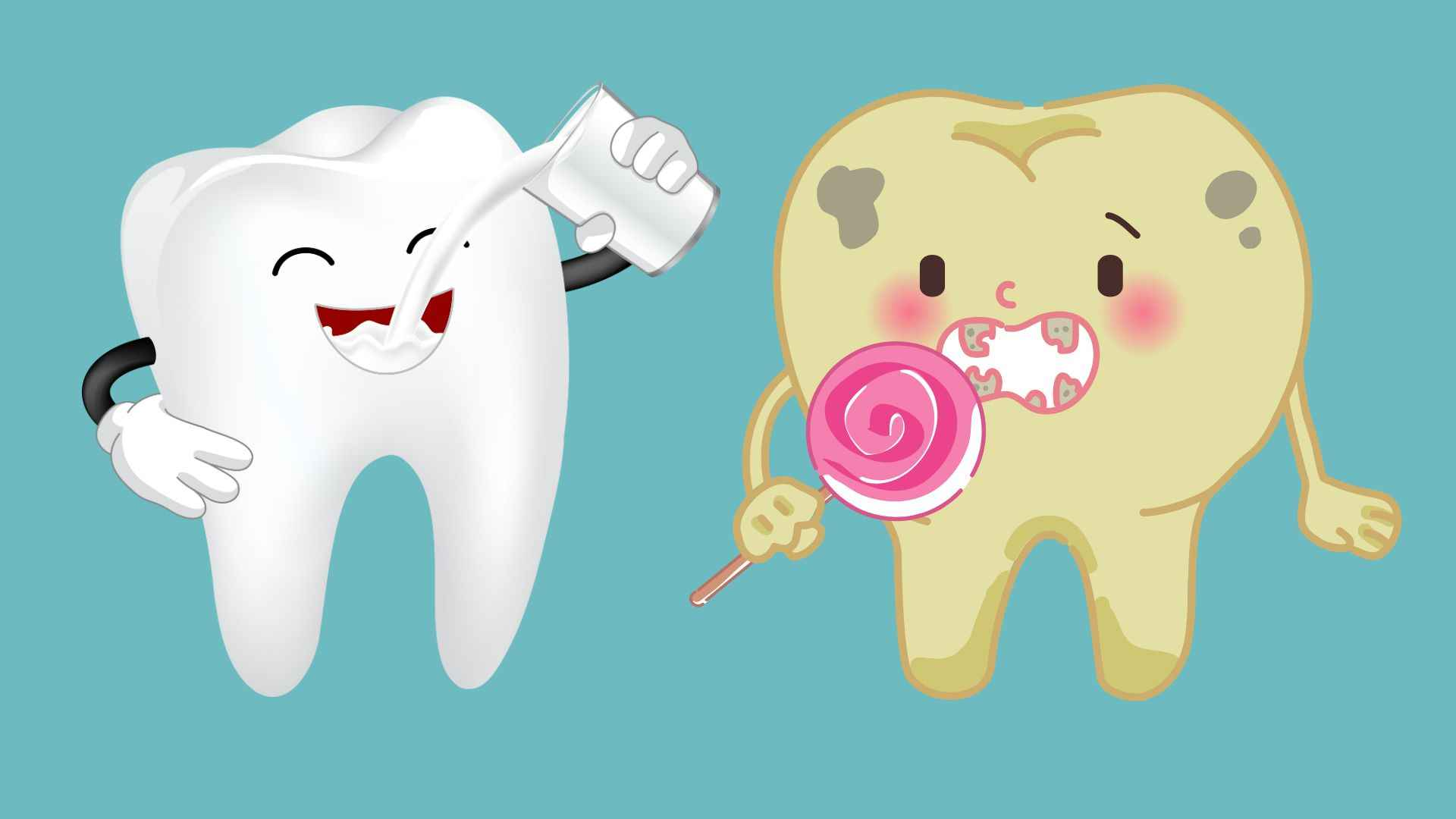What is Remineralization?
Remineralization is a natural tooth repair process that occurs daily in the mouth.
It involves the repair of lost enamel through the deposition of calcium and phosphate minerals from saliva into the enamel, helping to keep teeth strong and prevent tooth decay.
This process is essential for maintaining the integrity of the teeth and is a continuous, natural repair mechanism that restores minerals to the tooth enamel.
Remineralization can be promoted through various methods, including the use of remineralizing toothpaste, maintaining a balanced diet, and practicing good oral hygiene habits such as regular brushing and flossing.
First, what is demineralization?

Demineralization is the process in which acids, often produced by the bad bacteria in our mouths, remove essential minerals like calcium and phosphate from our teeth. Through this process, our enamel surface gets weakened, and this eventually leads to tooth decay.
Without intervention, demineralization and dental decay can then progress to full-blown dental caries (also known as cavities).
Preventing demineralization and promoting tooth remineralization are essential for protecting your teeth and promoting good oral health. The most popular tools for preventing demineralization include nano hydroxyapatite toothpaste or fluoride toothpaste.
Causes of Tooth Demineralization

Tooth demineralization is primarily caused by the interaction of acids with tooth enamel. These can be dietary acids or simply acids produced by the bad bacteria in our mouth.
Let’s walk through some of the main causes of demineralization:
Bad Bacteria & Plaque
Dental plaque is a thin, sticky film that naturally forms on our teeth. It consists of bacteria colonies that feed on sugars and carbohydrates from the foods we consume.
As they metabolize these sugars, they produce acids as byproducts. These acids can gradually erode the minerals, primarily calcium and phosphate, from our teeth which leads to demineralization.
Regular brushing and flossing help remove dental plaque, reducing the presence of acid-producing bacteria and their harmful effects on enamel.
Dietary Acids
Consuming acidic foods and beverages can directly introduce acids into our mouths, disrupting our oral pH.
For example, citrus fruits, carbonated sodas, and fruit juices are naturally acidic. When these acidic substances come into contact with tooth enamel, they can weaken the enamel's mineral structure, making it more susceptible to demineralization.
Limiting the intake of acidic foods and practicing good oral hygiene can help mitigate the impact of these dietary acids on teeth.
Poor Oral Hygiene

Inadequate oral hygiene practices, such as infrequent or insufficient brushing and flossing, can lead to dental plaque accumulating on tooth surfaces.
When plaque is not regularly removed, it can provide a breeding ground for acid-producing bacteria. These bacteria thrive in the plaque and continuously generate acids as they metabolize sugars.
The prolonged exposure of teeth to these acids can result in demineralization, making regular and thorough oral care essential for preventing enamel damage.
Dry Mouth
Saliva is known for its ability to neutralize acids and support the remineralization of enamel. It's an essential component of your oral microbiome.
However, conditions that reduce salivary flow, such as certain medications, medical conditions, or dehydration, can leave the mouth dry. In a dry mouth environment, acids are not effectively neutralized, and the protective effects of saliva are compromised.
This can lead to an increased risk of enamel demineralization and tooth decay, making it essential for individuals with dry mouth to manage this condition effectively.
To combat dry mouth, certain toothpastes and chewing gums contain xylitol, a compound that has been proven to promote saliva production and normalize oral pH.
Acid Reflux
Conditions like acid reflux (gastroesophageal reflux disease or GERD) or frequent vomiting expose teeth to stomach acids, which are highly acidic and corrosive.
When these strong acids come into contact with tooth enamel, they can rapidly erode the minerals from the enamel surface, leading to demineralization.
Individuals with these conditions are at an elevated risk of enamel damage, and managing acid reflux or vomiting episodes is crucial for protecting dental health.
What Is Tooth Remineralization vs. Demineralization Process

Demineralization involves the loss of minerals from tooth enamel due to acid exposure, which can lead to weakened enamel and tooth decay. Remineralization, on the other hand, is the natural process of depositing minerals back into the tooth structure which repairs and strengthens teeth.
Maintaining a balanced oral environment, practicing good oral hygiene, and using remineralizing toothpaste are essential for preventing demineralization and supporting the remineralization process to maintain healthy teeth.
Can you remineralize teeth?
Yes, you can remineralize your teeth using various remineralizing agents, including nano-hydroxyapatite and xylitol.
Studies have shown that nano-hydroxyapatite, a synthetic form of the natural mineral in tooth enamel, can effectively enhance remineralization by filling in microscopic defects and repairing early signs of decay.
A research found that toothpaste containing nano-hydroxyapatite significantly improved enamel hardness compared to fluoride toothpaste.
Additionally, xylitol, a natural sugar alcohol found in many fruits, has been shown to promote saliva production and inhibit the growth of cavity-causing bacteria, further supporting the remineralization process.
Research in Caries Research indicates that xylitol can help maintain a neutral pH in the mouth, creating an environment conducive to remineralization.
Incorporating a diet rich in minerals and maintaining good oral hygiene practices, such as regular brushing and flossing, can also aid in the remineralization of teeth.
However, once significant decay occurs, professional dental treatment is necessary, as remineralization is most effective on early-stage damage.
Your Saliva is the First Line of Defense
Saliva plays a vital role in remineralization by:
-
maintaining a balanced pH in your mouth
-
neutralizing acidic conditions that promote demineralization
-
and providing essential minerals like calcium and phosphate
It also contains antimicrobial properties that control harmful bacteria, reducing acid production and contributing to a healthier oral environment.
Essentially, saliva forms a protective coating over your teeth, acting as a barrier against external factors and providing lubrication to help maintain enamel integrity.
Additionally, increased salivary flow during activities like chewing stimulates remineralization by delivering minerals to tooth surfaces and rinsing away acids and debris.
What is remineralizing toothpaste?

Remineralizing toothpaste is a type of toothpaste formulated with ingredients that enhance the natural process of remineralization in tooth enamel.
The primary goal of remineralizing toothpaste is to help repair and strengthen weakened enamel by depositing essential minerals, such as calcium and phosphate, back into your teeth. For example, nano hydroxyapatite toothpaste is great for remineralization because it is made of the same components as your natural tooth structure.
Remineralizing toothpaste can be particularly beneficial for individuals with early signs of enamel demineralization, tooth sensitivity, or a higher risk of cavities.
Plus, remineralization can take as little as 8 weeks.
Fluoride vs. Nano Hydroxyapatite for Remineralization

Fluoride and nano hydroxyapatite are two effective ingredients for promoting remineralization and preventing tooth decay. However, in comparison hydroxyapatite vs fluoride, there are some differences in how they work.
How Fluoride Works
Fluoride is a well-established and widely used mineral in dental care known for its effectiveness in promoting remineralization and strengthening tooth enamel.
It works by enhancing the deposition of fluoride ions into the enamel, forming a more acid-resistant mineral called fluorapatite. Additionally, fluoride helps inhibit the growth of acid-producing bacteria, reducing the risk of acid attacks on enamel.
How Nano Hydroxyapatite Works

Nano hydroxyapatite (nHA), on the other hand, is a synthetic form of hydroxyapatite, a mineral naturally found in teeth and bones. What sets nHA apart is its significantly smaller particle size, allowing for better penetration into enamel.
Nano hydroxyapatite is safe and effective. This toothpaste works by depositing nano-sized hydroxyapatite particles onto the tooth surface, which can bond with the enamel and fill in micro-sized surface defects, thus strengthening the enamel structure.
Research suggests that nHA toothpaste has remineralizing properties and can effectively repair early enamel lesions and minor surface defects. These benefits are maximized at a concentration of 5% nano hydroxyapatite.
Which is better?
Many people believe nano hydroxyapatite is better than fluoride in oral care.
While newer, nano hydroxyapatite is shown by research to be equally as effective as fluoride toothpaste at promoting remineralization. In fact, some studies even suggest that it is more effective than fluoride.
Ultimately, the choice of which remineralizing ingredient is up to you. Both nHA and fluoride are effective, but research suggests that excess consumption of fluoride has greater side effects. Conversely, nano hydroxyapatite reportedly has zero adverse effects.
Thus, some people prefer to avoid fluoride and opt for nano hydroxyapatite in toothpaste instead. That said, you can always choose to use fluoride and nano hydroxyapatite together in your routine if you prefer.
What ingredients in toothpaste support remineralization?

Several ingredients in oral care products can support remineralization and contribute to the overall dental health.
These ingredients work by promoting the deposition of essential minerals like calcium and phosphate back into tooth enamel, making it more resilient to acid attacks and strengthening the teeth.
Nano Hydroxyapatite
A synthetic form of a mineral naturally found in teeth and bones, nano hydroxyapatite supports healthy teeth by promoting remineralization. When used in toothpaste, studies show nHA particles can bond with tooth enamel, effectively filling in micro-sized surface defects and strengthening the enamel structure.
This helps repair early enamel lesions and minor surface imperfections, making the enamel more resilient to acid attacks and reducing the risk of tooth decay.
Xylitol
Research suggests xylitol supports healthy teeth by reducing the growth of harmful oral bacteria. Xylitol disrupts the bacteria's ability to metabolize sugars, leading to a decrease in acid production.
This reduction in acidic conditions helps create a healthier oral environment, supporting remineralization and reducing the risk of tooth decay. Xylitol-containing products, such as gum and xylitol toothpaste tablets, can be especially beneficial for individuals prone to cavities.
Zinc Citrate
Studies show zinc citrate supports dental health by helping to control the growth of oral bacteria and reducing plaque formation. By inhibiting the accumulation of plaque, zinc citrate can contribute to a healthier oral microbiome.
This, in turn, supports the natural process of remineralization, as a cleaner mouth is less prone to acidic conditions that lead to enamel demineralization and tooth decay.
Sodium Bicarbonate
Sodium bicarbonate, also known as baking soda, is a mild abrasive agent that can help remove surface stains and plaque from teeth. Additionally, sodium bicarbonate can help neutralize acids in the mouth, contributing to a balanced pH environment that is more conducive to remineralization.
How long does tooth remineralization take?

Studies show that remineralizing toothpaste with nano hydroxyapatite can promote remineralization and reduce sensitivity in as little as 8 weeks. In fact, nano hydroxyapatite can reverse initial caries lesions according to some research.
That said, remineralization is a gradual process that can vary in duration depending on several factors. For example, the extent of enamel damage is a rate limiting factor as minor surface defects or early enamel lesions remineralize more quickly than deeper or more extensive damage.
Consistent and thorough oral care, including regular brushing and flossing with expandable floss, is essential for creating an environment conducive to remineralization.
Signs of Tooth Remineralization

-
Reduced Sensitivity: Decreased sensitivity to hot or cold foods and beverages is a positive sign of remineralization. Strengthened enamel is less porous and better insulated against temperature changes, resulting in reduced sensitivity.
-
Less Tooth Pain: If you have been experiencing mild or occasional tooth pain or discomfort, such as when chewing or biting, and it improves over time, it could indicate that your enamel is becoming more resilient through remineralization.
-
Smoothing of Tooth Surfaces: Early enamel demineralization can cause rough or textured tooth surfaces. With remineralization, these surfaces may become smoother and feel less gritty to the touch.
-
Whiter Teeth: As enamel remineralizes and surface defects are repaired, teeth may appear whiter and have a healthier appearance. This is due to the increased mineral content and improved enamel surface.
-
Reduced Appearance of White Spots: White spots on the teeth, often a sign of enamel demineralization, may become less noticeable or fade as enamel remineralizes and regains its mineral content.
-
Improved Oral Health: Overall improvements in oral health, such as fewer instances of tooth decay or a decrease in the frequency of cavities, can be a clear indication that remineralization is effectively strengthening your teeth.
Of course, it's important to note that the extent and speed of remineralization can vary among individuals, and these signs may not be immediate or equally pronounced for everyone.
Other Tips for Strong Teeth

Using nano hydroxyapatite toothpaste isn't the only way to remineralize teeth.
Maintaining strong and healthy teeth requires a combination of good oral hygiene practices and lifestyle choices. Here are some additional tips to promote stronger, healthy teeth:
Brush with Nano Hydroxyapatite Toothpaste
Nano hydroxyapatite toothpaste contains tiny particles of a mineral naturally found in teeth and bones.
Thus, brushing with nano hydroxyapatite toothpaste tablets helps strengthen enamel by depositing nano hydroxyapatite particles onto tooth surfaces. These particles bond with enamel, fill in minor surface defects, and promote remineralization.
Use Expandable Floss at Least Three Times per Week
Flossing is essential for removing food particles and plaque from between your teeth and along the gumline, where your toothbrush may not be able to reach.
Expandable floss is designed to expand and adapt to the contours of your teeth, providing thorough cleaning. We recommend flossing at least three times per week (preferably daily) to prevent prevent plaque buildup and reduce your risk of gum disease.
Limit Acidic Foods in Your Diet
As discussed earlier, acidic foods and beverages, such as citrus fruits, carbonated sodas, and certain sauces, can weaken tooth enamel and contribute to enamel erosion over time.
Limiting your consumption of acidic foods helps reduce the risk of acid-related enamel damage. If you do consume acidic items, consider rinsing your mouth with water afterward or using an alkaline mouthwash to help neutralize acids and minimize their effects on your teeth.
Use Alcohol-Free Mouthwash
Alcohol-free mouthwash can be a gentler choice for oral care. Alcohol-based mouthwashes can sometimes lead to dry mouth, which can increase the risk of dental issues.
An alcohol-free mouthwash can help freshen your breath, reduce the growth of harmful bacteria, and provide additional support for your oral hygiene routine without causing dryness.
Plus, you can use alcohol free mouth everyday, and it's safe for kids to use too.
Moreover, oil-pulling mouthwashes do not contribute to remineralization. For this process, it’s important to use alcohol-free mouthwash that provide several benefits.
The Bottom Line: What is Remineralization of Teeth?

Remineralization is a natural process in which essential minerals, primarily calcium and phosphate, are deposited back into the enamel, the outermost layer of your teeth. This process repairs and strengthens enamel that has been weakened or damaged by acids and bacteria, ultimately reducing your risk of tooth decay and cavities
While remineralization is a process that can take weeks or months to occur, brushing with nano hydroxyapatite toothpaste for two minutes daily, using expandable floss at least three times per week, and limiting acidic and sugary foods in your diet can help.
Overall, remineralization is a fundamental aspect of maintaining strong and healthy teeth, and it takes not only good oral hygiene practices to achieve but also the use of remineralizing toothpaste and a balanced diet.
Frequently Asked Questions
How do you remineralize your teeth?
You can remineralize your teeth by following a combination of good oral hygiene practices and making lifestyle choices that promote enamel health such as brushing with nano hydroxyapatite toothpaste, flossing regularly with expandable dental floss, and limiting acidic and sugary foods in your diet.
How long does it take to remineralize teeth?
The time it takes to remineralize teeth can vary widely depending on several factors, including the extent of enamel damage, individual oral hygiene practices, and the presence of remineralizing agents.
Is it good to remineralize teeth?
Yes, it is good to remineralize teeth. Remineralization is a natural process that helps repair and strengthen tooth enamel, the outer protective layer of your teeth. When enamel is demineralized due to acid attacks from bacteria and dietary factors, remineralization can counteract this process by depositing essential minerals like calcium and phosphate back into the enamel. The remineralization process as a whole helps prevent tooth decay and cavities.
How do you know if your teeth are remineralizing?
You can tell if your teeth are remineralizing if you notice decreased sensitivity, improved oral comfort, smoother tooth surfaces, and a whiter, brighter appearance of your teeth. Further, white spots on teeth, often indicative of enamel demineralization, may become less noticeable or fade as remineralization progresses and the enamel regains its mineral content.
Does baking soda remineralize teeth?
While baking soda can contribute to maintaining oral hygiene and preventing enamel erosion by balancing the pH of your mouth, it is not a direct remineralizing agent for teeth. Instead, baking soda is a mild abrasive that is good for polishing and brightening teeth.
Can you remineralize a tooth?
Yes, teeth can remineralize to a certain extent by restoring lost minerals, primarily through exposure to nano hydroxyapatite or fluoride. This process helps strengthen enamel and reverse early stages of tooth decay. However, once a cavity forms, professional dental treatment is necessary.
How can I improve my tooth remineralization?
To enhance tooth remineralization, consider using remineralizing toothpaste that contains nano hydroxyapatite, as it can effectively restore lost minerals and strengthen enamel. This type of toothpaste helps fill in microscopic holes in the enamel and promotes overall dental health. Additionally, maintain good oral hygiene and reduce sugary or acidic foods for optimal results.
How to fix damaged tooth enamel?
To fix damaged tooth enamel, consider using remineralizing toothpaste containing fluoride or nano hydroxyapatite to help restore lost minerals and strengthen the enamel. Professional treatments, such as varnishes or dental sealants, can also provide additional protection and repair. Additionally, maintaining good oral hygiene and reducing acidic or sugary foods can help prevent further enamel erosion.
How to strengthen teeth?
To strengthen teeth, maintain a balanced diet rich in calcium and vitamin D, which supports enamel health. Regular dental check-ups and cleanings are essential for preventing decay and detecting issues early. Additionally, practicing good oral hygiene by brushing twice a day with fluoride toothpaste and flossing daily can significantly enhance tooth strength and overall dental health.
What causes teeth to lose minerals?
Teeth lose minerals primarily due to the demineralization process caused by acids produced by bacteria that feed on sugars and carbohydrates in the mouth. Factors such as poor oral hygiene, frequent consumption of acidic foods and beverages, and dry mouth can exacerbate this mineral loss. Additionally, certain medical conditions and medications may also contribute to decreased saliva production, further increasing the risk of tooth demineralization.
Why saliva is important for tooth remineralization?
Saliva plays a key role in tooth remineralization by providing essential minerals like calcium and phosphate that help repair enamel. It neutralizes acids in the mouth, which reduces the risk of tooth decay. Additionally, saliva forms a protective barrier on teeth, supporting their overall health.
Can remineralization restore enamel?
Remineralization can help repair early-stage enamel damage by replenishing lost minerals like calcium and phosphate. However, it cannot fully restore enamel that is severely worn or eroded. Once enamel is extensively damaged, it cannot regenerate.
Can you fully repair enamel?
No, enamel cannot be fully repaired once it is severely damaged because it lacks the ability to regenerate. However, minor enamel damage can be remineralized through treatments that restore lost minerals. For extensive damage, dentists may use restorative options like fillings, crowns, or veneers to protect the teeth.
What is the meaning of the remineralization process?
Remineralization refers to the process by which essential minerals, primarily calcium and phosphate, are deposited back into the enamel, the outermost layer of your teeth. This natural process helps repair and strengthen enamel that has been weakened or damaged by acids and bacteria.
Does remineralization whiten teeth?
Yes, remineralizing toothpaste with nano hydroxyapatite can whiten your teeth by repairing and restoring enamel, which helps reduce surface stains. This ingredient strengthens enamel while enhancing its smoothness and brightness, giving teeth a whiter appearance. Unlike bleaching, it’s a gentler approach that protects teeth while improving their color.
Can yellow teeth turn white again?
Yes, yellow teeth can turn white again through various treatments like professional whitening, over-the-counter whitening products like whitening strips, or using remineralizing toothpaste with ingredients like nano hydroxyapatite. Regular brushing and avoiding stain-causing foods and drinks also help improve whiteness. For deeper stains, professional treatments usually offer the most effective results.
Is tooth remineralization possible?
Yes, tooth remineralization is possible, especially in the early stages of tooth decay. Using products containing minerals like fluoride or hydroxyapatite can help restore lost minerals to the enamel, strengthening it and reversing minor damage. Remineralization can repair microscopic cracks and prevent further decay if caught early. However, for advanced cavities, professional dental treatment is necessary to restore the tooth structure.
Can you rebuild enamel on teeth?
While you can't fully rebuild enamel once it's lost, you can remineralize and strengthen it in the early stages of decay. Products containing hydroxyapatite can help restore lost minerals and repair minor damage to enamel. These minerals can fill in microscopic cracks, making the enamel more resistant to further decay. However, once enamel is significantly worn away, professional dental treatments like fillings are needed to restore the tooth's structure.
Is too much hydroxyapatite bad for teeth?
No, too much hydroxyapatite is not generally bad for teeth. Hydroxyapatite is a naturally occurring mineral in tooth enamel, and using it in oral care products is considered safe. Research indicates that it is biocompatible and non-toxic, so overuse typically does not pose a risk. However, it’s always best to follow the recommended usage instructions to avoid unnecessary application.






















